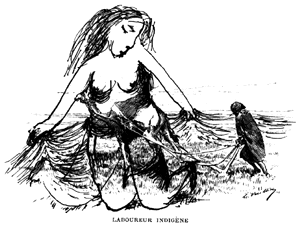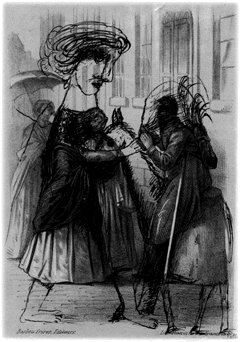
I
A man sits at the table near the sea. He eats spaghetti with a sweet tomato sauce. For a few seconds he touches the universe. Later he eats a piece of bread and smokes a cigarette. He reads a novel and listens to music. Later he takes his shoes off. If he is lucky he sleeps during the night with a woman. Is that cynical or has it always been like that?
II
Walkabout. En route black boys in different stages. Tender green coarse black. A throne of sandstone without the queen. The view to an island the only challenge. Where is written lookout the touristic absurdity starts. In the park a girl meditates. Her dog lies in the sun under the Southern Cross. Scratched in a tree is written: There are readers of books and readers of life. The first read the wrong books, the second live the wrong lives. What are the rest doing?
III
De profundis. A woman studies
Trakl in Annandale and recites Neruda in her rose garden. I
don't know where poetry comes from, from winter or a river?
Her friend after a lifetime of drinking and imitation reflects:
Imagine having no longer the strength to pick up a flower?
After 50,000 years of paradise our civilisation dissolves the
Aborigines like sugar. We are so strong and so profound. And how
long do we live? Thousand years or only a second?
IV
The car has ruined us all but
who wants to admit it? But a thousand steps past the Three
Sisters leads to a worn out path between the gum trees. There the
Asians still smile against the haze of the Blue Mountains.
In the French restaurant tender lamb is eaten in front of the open
fire. A lady stretches her long European legs in the direction of
a bearded man who smokes his pipe in the bush. She hopes to meet
him after midnight.
V
In the universal history of infamy the killers are elegantly destroyed by Borges. Many years later a man plants some daisies on the grave of his mother in Mona Lisa Vale. His hands still black from the earth lift a glass of whisky in the sombre atmosphere of the television room. Hitler and his delusion once again is sold falsified on the screen. But at dawn the colourful cockatoos appear on the stone terrace.
VI
Over the moss-grown hill on the highway into the waves. There a surfie caresses his long hair. And from an envelope from Salzburg culture-letters fall onto the sand. The better they are written the quicker they remove themselves from reality. A child lifts a dead bird into the air. In the evening in the club a solitary returned soldier applauds the singer. Her song declines in the noise of poker machines.
VII
The beach is covered with bluebottles. If one picks one up by hand it could be poisoned. In the house behind the banana tree a vodafone is visible on the windowsill. It looks like a dark figurine and with it one could, if one had something to say, call the whole world. Instead a young girl illuminated by candle light writes a letter into the western desert. When she stops she dreams of producing some memorable art towards the end of the 20th century.
VIII
The globe is full of empty promises. An artificial blonde is standing in a little shop in Bondi Junction surrounded by reproductions of Klimt, Schiele and Hundertwasser. Hundertwasser owns a peninsula in New Zealand and decided instead of painting to build colourful houses. Do you know the Fauves? asks a gentleman from Regensburg wearing a black suit and silver jewellery. On our walls they have become tame, replies the blonde and points to an avant garde nude. The globe is full of broken promises.
IX
A grey fat man is selling green
tomatoes in front of the supermarket. 2 Kilo for a Dollar. He
insists that philosophy has become superfluous. Either one has
tomatoes or not.
At least the dogs have retained their instincts. One of them
tenderly licks the breast of his mistress in a café while
she stares beyond the head of her lover into the empty blue
sky.
Green tomatoes for the living, red tomatoes for the dead, shouts
the grey fat man, who had suddenly become insane. It was a very
ordinary day.
X
Disgusted by politics the politician went to bed. Neither war nor peace could solace him. There are times when only the abyss counts. In the neon light (it was two o'clock in the morning) he began to read Balzac and realised that genius like art in general has its limitations. He continued to doze. For him the morning, the noon, the evening had become meaningless. Only the black bird on the rock turning towards the sea still existed.
XI
What will happen when there are no more FRAGMENTS? Whether of the gods or of people? When LIFE is MIST and MIST LIFE. When there are no more petals on a black branch? Some already draw the curtain during the day, close the door at night. When tenderness, sensibility, ethics belong to another age, only the cracks of being apparent? The times for the poet whose hand dipped in darkness does not darken are over.
XII
Many speak without having anything to say, kill by providence. On this green hill children are welcome but they don't welcome us. Technology has put them into another world. Perhaps they don't recognise us? Listening to the sea one can hear the echo of death. Fish implode before being sighted. Didn't Dostoevsky already write from the House of the Dead? What is the point of describing all the scenes?
XIII
On the island a dark woman shouts
from her window: I have no time, I have to meditate. Is
there a mediocrity of feeling like that of the intellect? And
millions on the run for the author one can love. But the human
gallery is filled with observers who ask: Should I smoke or not
smoke? For those who stopped already the leader handed out
golden watches. On the arena laughter is breaking out. Is it about
banalities or balls?
Only Pushkin dared to write once ... I fucked her, with God's
help, last Sunday.
XIV
Sometimes I only think of the BOAT. When everything goes wrong she keeps me afloat. Only my dead books, and there are many, go down. But she also cuts me into two pieces, like water on the high seas. Her beauty is constructed from within: therefore she remains my eternal mistress. Now being renovated, she will not change. She is like my 80-year-old friend from the mountains, whose beer I drink and who remains young despite all the evils of time.
XV
I lean against the past, as against an old tree. But soon I become restless and have to move on into the unknown. There one is lost, like the old critics with the art of youth. Isn't it better to support the immature new than the mature old? For the past there is no future, only for the present. How did my friend the poet express it? My glances became bright by jumping over the hills of verse.
XVI
A robust elderly man born in the Mediterranean was planting an olive tree in the garden of his house in a western suburb of Sydney. He was familiar with the earth but not yet with the language of his new country. Glancing at the road and its passing cars he started to cry. Was it because of loneliness or from the pain in his stomach after a too heavy lunch? Once more, he thought, I would like to climb without bread, without water, over the stones and thorn hedges of my homeland. In the new rich world it was only beauty that had left him.
XVII
One pays a price for stupidity as for cleverness for ignorance as for knowledge for war as for peace for hate as for love said the man behind the window of an imposing government building. Every visitor wondered how this bureaucrat had reached his insights. His only weakness seemed to be his repetitiveness. Indeed in many other ways he was rather limited, but occasionally he hit the nail on its head. Asked about his educator he mentioned his cat Julia which he observes every night stretched out comfortably in front of a switched off television set.
XVIII
Under a cool dark sky a group of men in track suits played tennis with artificial light. Less the quality of their game than their gaiety was remarkable. The slightest success led to an expression of cheerfulness which is rather rare in disciplines like the media, politics or economics. Perhaps their representatives should more often use rackets instead of words. These sportsmen were selling imported jewellery on flea markets on weekends for a living but were capable of standing a melancholy evening on its head.
XIX
The whole day emptiness. A light
wind blows across the sand. A woman in a green bath robe looks
towards the sea. At the exit to the beach two miniature palm
trees. Otherwise nothing. A man reads in a colour magazine an
interview with a real estate agent plus an article about the last
days of the Duchess of Windsor. She was supposed to have been
totally gaga.
I stretch out my left leg in the direction of the South Pole.
After ten seconds I retract it and start reading:
The words we wrap emotion in
Like those our intellect finds kin
Are forged in every human heart
And don't need priming by high art
(Peter Porter)
XX
He found an oval black stone. Was
it the philosopher's stone? For that he had to walk for days, his
face turned either to the water or to the land. For that he had no
sleep for many nights and had to visit the solitary house on the
blue hill again and again. He had to live without flowers and
without books without music and without women. Only to children
was he allowed to wave while collecting some fragments of his
times.
Translated by the author from a text originally written in German.
|
|
This prose poem
was published simultaneously in print in: Illustrated with 33 drawings by Garry Shead |
